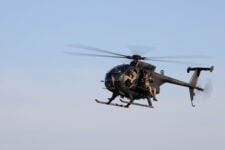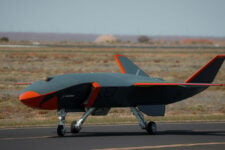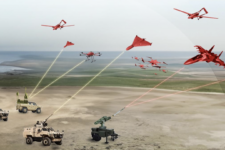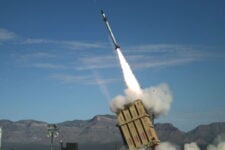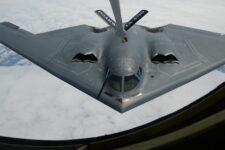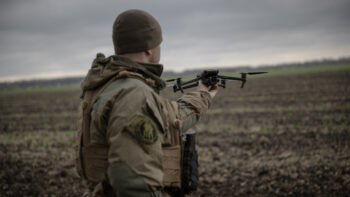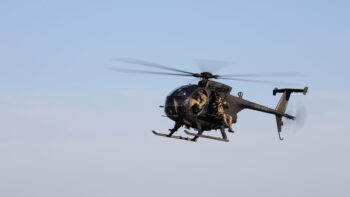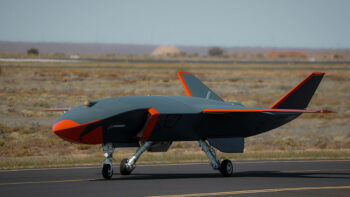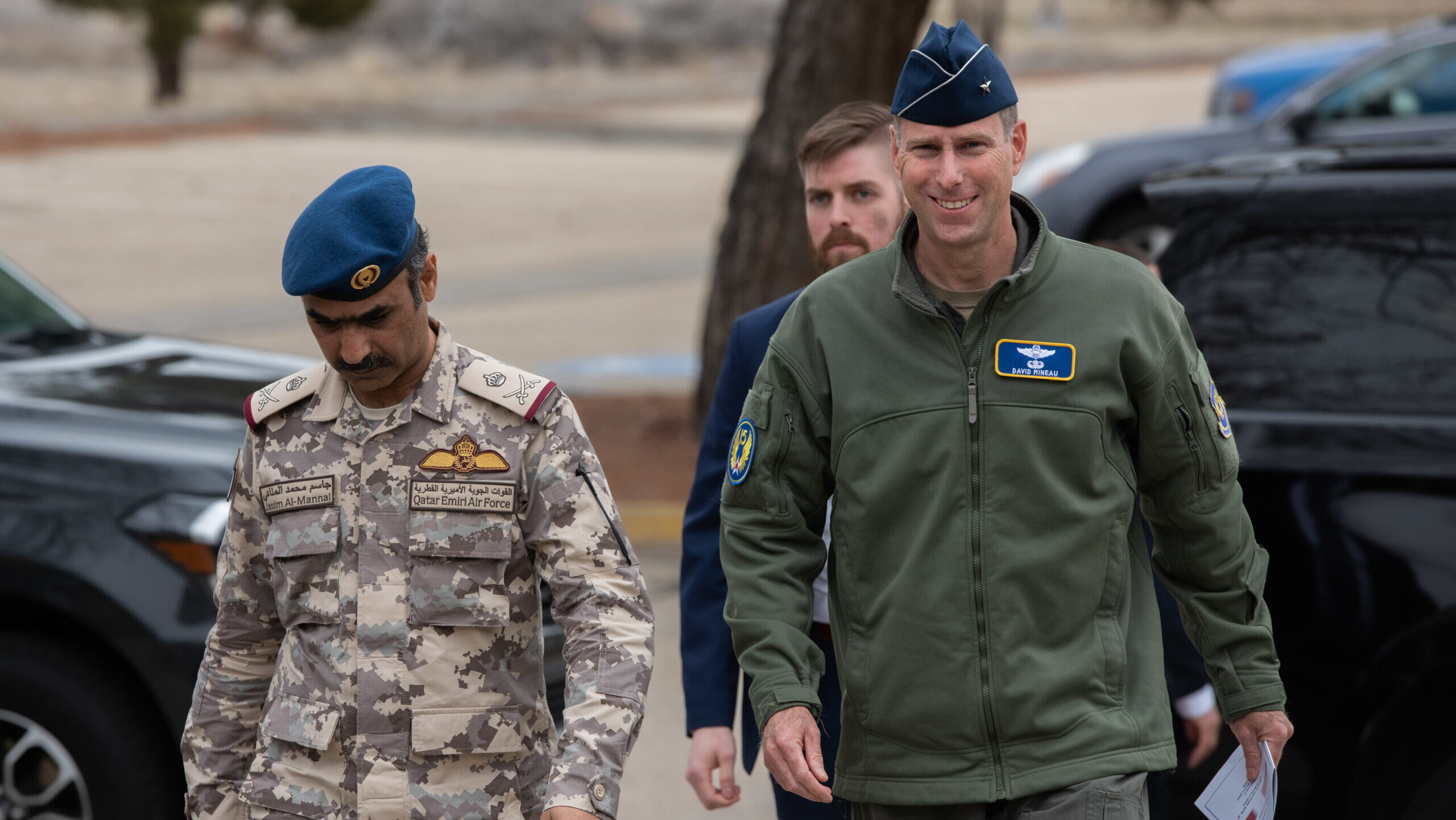
Qatar Emiri Air Force (QEAF) Maj. Gen. Jassim Al-Mannai, QEAF commander, and U.S. Air Force Brig. Gen. David Mineau, 15th Air Force vice commander, walk on Mountain Home Air Force Base, Idaho, March 14, 2023. (U.S. Air Force photo by Airman 1st Class Krista Reed Choate)
DUBAI AIRSHOW — Air Forces Central (AFCENT) Deputy Commander Brig. Gen. David Mineau said today that a total of 17 partner countries — within and outside the Middle East — are collaborating on constructing both a common operating picture and shared threat warning for the region. And while there is “slow but steady progress” on both, long-standing regional tensions remain a frustrating challenge.
Chief among those issues: How to “get to the point where we can trust to share [information] multilaterally” he said during the Dubai International Air Chiefs Conference.
“I’d say B-, in that there is shared understanding that we need to do it,” Mineau said of creating the shared operating picture and threat environment.
The issue is not new, but it has become acute, given the at least 40 drone and missile attacks that US and coalition forces have come under since Hamas launched its Oct. 7 assault on Israel. In an ideal world, all the nations aligned with the US would be able to send their threat information into a joint system that would benefit everyone. Yet given political realities, AFCENT finds itself at the crossroads of several nations who may or may not have good relations but are eager to understand what threats they may face.
Mineau explained there are two approaches to tackle the issue: “Do we share data into a central hub where it becomes anonymous, where you don’t know where the source came from, but then you trust the output?” he asked. Or, partners could get to the point in their respective relationships “where we can trust each other to know where the data is coming from.
“So we’re working both of those angles across a common operating picture and intelligence. So, long way to go on policy, trust building, but we are making incremental improvement, ” he added.
Mineau didn’t elaborate on which regional powers are involved in either effort and it’s not clear how far along AFCENT is in its shared operating picture or threat warning ambitions. He declined to answer reporters’ questions after his remarks, saying “they don’t want want us going on record with anything here.”
However, there are some obvious candidates who may have trust issues. Despite the signing of the Abraham Accords, many Arab countries remain distrustful of Israel, and vice versa. Those nascent relations have additionally come under greater strain as Israel prosecutes a punishing retaliatory campaign against Hamas in Gaza — a topic that the large gathering of international air chiefs conspicuously did not address. (AFCENT operates from Al Udeid Air Base in Qatar, a country that also harbors the political leadership of Hamas.)
Still, the conference had at least one Israeli sponsor in Rafael, the manufacturer of the Iron Dome, pointing to an enduring relationship between Israel and the UAE.
The general’s comments come as US forces have been increasingly attacked by what US officials say are Iran-backed proxies in Syria and Iraq. According to the Pentagon, a total of 56 US personnel have been injured in the attacks, which the US responded to with two separate airstrikes targeting weapons storage facilities. A US drone was also shot down by the Houthi forces in Yemen last week.
According to Mineau, AFCENT has made strides in other areas with new tech, particularly artificial intelligence.
“We are actually getting to where we can have the algorithms present us packaging options from which to build the master air attack plan, and eventually put out an air tasking order for us to execute,” he said.
He added that AI isn’t making decisions itself — that remains in the hands of human operators, who can now execute their tasks more efficiently.





